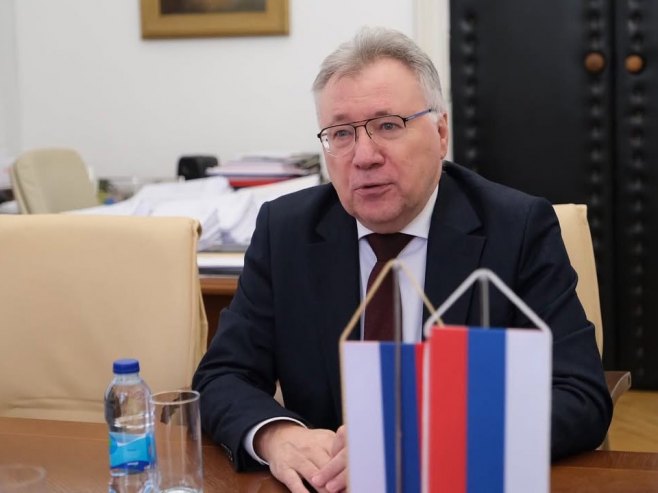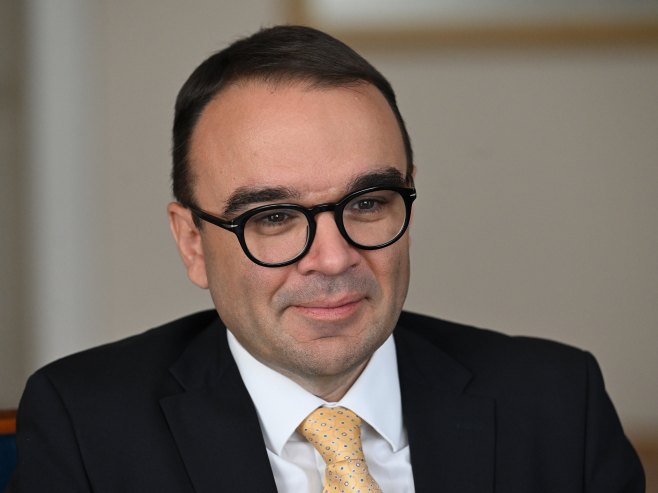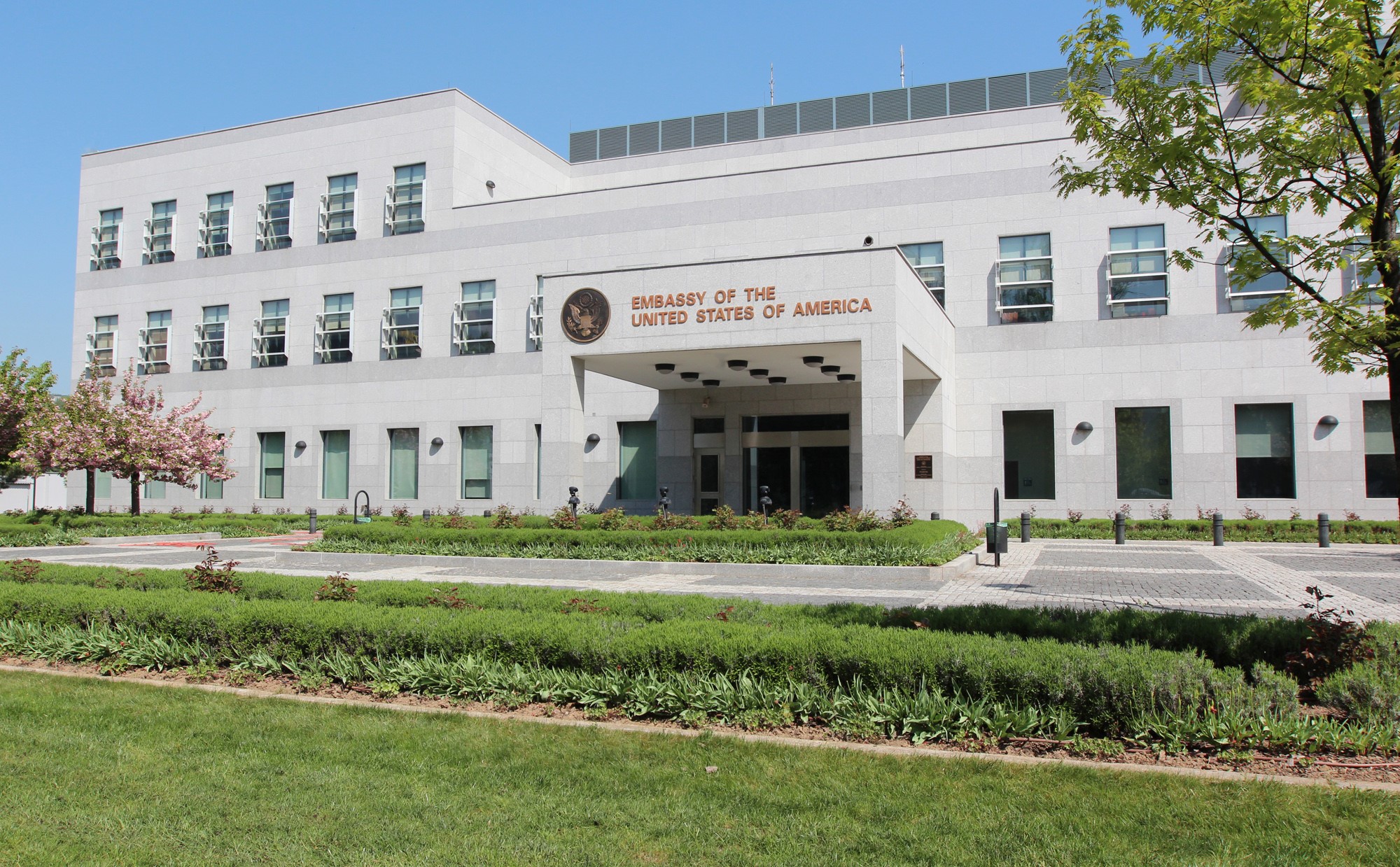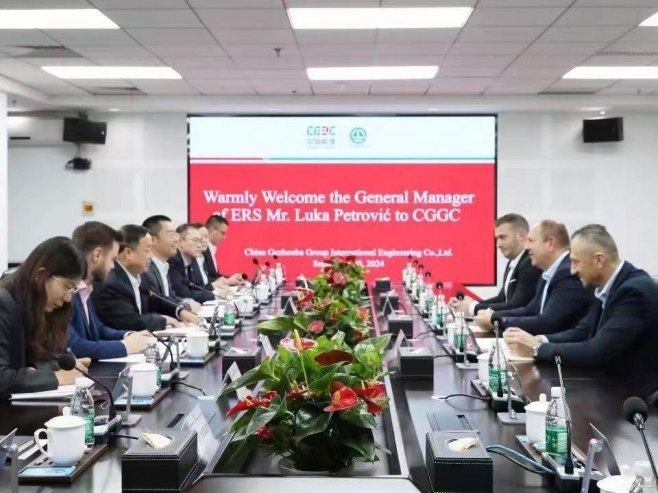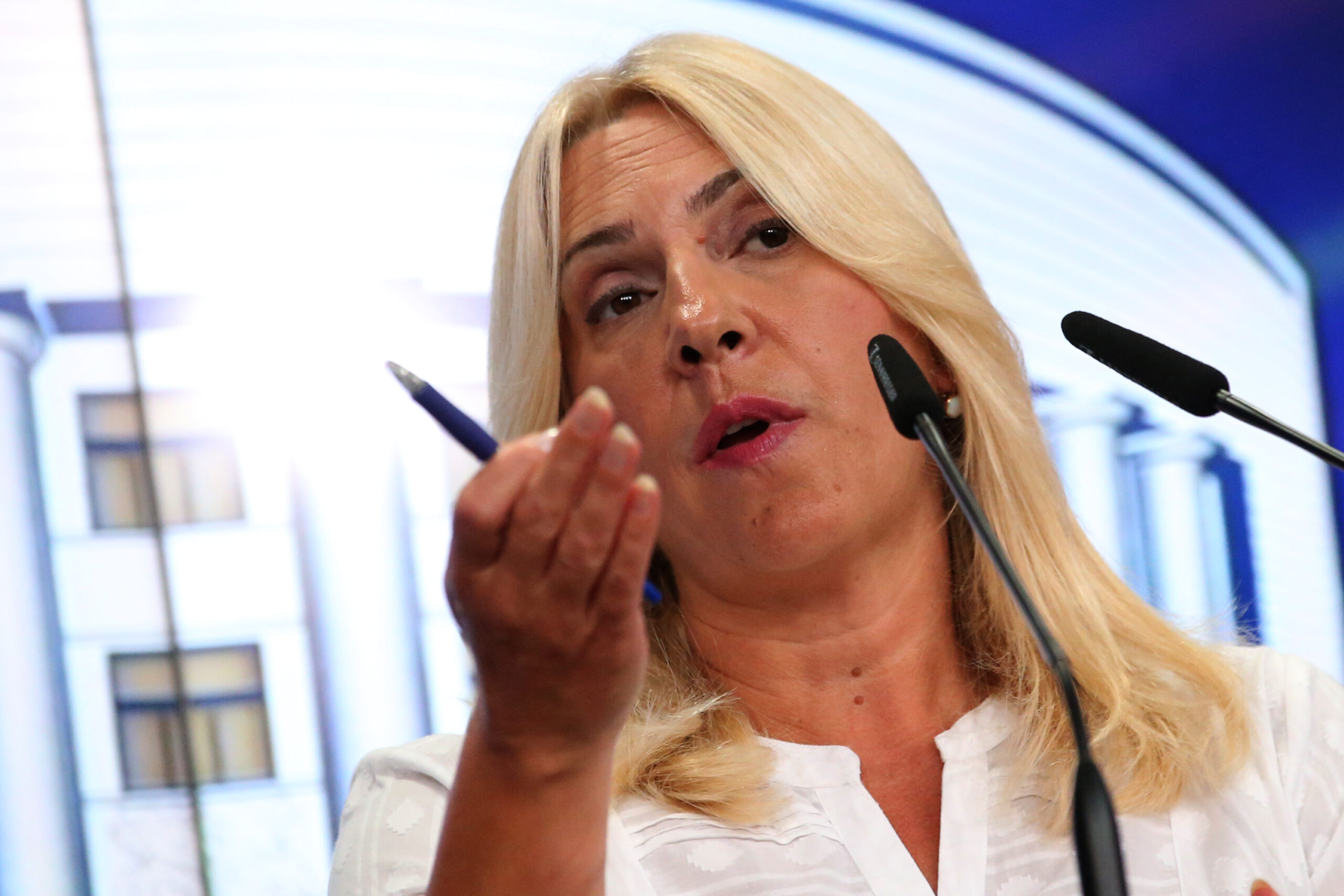The lifting of U.S. sanctions against the leadership of Republika Srpska marks a turning point in Washington’s three-decade policy toward Bosnia and Herzegovina, one that could open the door to an internal political agreement, said Aleksandar Vranješ, BiH Ambassador to Serbia, in an interview for RT Balkan.
Washington on Wednesday announced the removal of sanctions for 46 individuals and legal entities from Republika Srpska, including President Milorad Dodik and BiH Presidency member Željka Cvijanović, originally imposed by the administrations of Joseph Biden and Barack Obama.
“It’s very good that this happened yesterday — not only from a political but also from an economic standpoint,” Vranješ said.
He recalled that Washington’s blacklist had included not only top politicians but also officials who organized the celebration of Republika Srpska Day.
“We have always received only demands and pressure from the U.S.,” the ambassador said, adding that the previous administration’s goal was to suppress Republika Srpska and make it disappear, while the current administration evidently wants to correct that mistake.
Vranješ emphasized that this does not mean the U.S. has gone to the opposite extreme after nearly 30 years of “completely negative” policy toward the Serbs.
“I think this is a rational approach in which the U.S. has opened the door to dialogue — both with Washington and among actors within BiH,” he explained. Republika Srpska, he added, has long warned that the survival of BiH depends solely on internal consensus through respect for the Dayton Peace Agreement.
According to him, the change in the U.S. stance and the anticipated departure of Christian Schmidt create space for realizing that BiH can no longer function through unilateral dominance and must engage in dialogue with Serbs and Croats.
“If attempts continue to outvote and sideline Serbs and Croats, that will mark the end of BiH — but the responsibility will not lie in Banjaluka or Mostar,” the ambassador said.
The fate of Schmidt and the OHR
Contrary to the provisions of the Dayton Agreement, Schmidt was not appointed by the UN Security Council but by the self-proclaimed Peace Implementation Council, meaning he has no legal mandate, Vranješ reminded.
“When Christian Schmidt arrived illegally in BiH, the Bosniak political elite welcomed him enthusiastically, believing that any foreign influence that twists Republika Srpska’s arm is welcome,” he said.
Although Schmidt mostly acted against the Serbs and Republika Srpska, Vranješ noted that he also “slapped” political Sarajevo when he suspended the Federation’s constitution in 2022 to help the current coalition take power — disappointing even the Croats, who had hoped for election law reform.
“In the end, as he leaves, nobody will miss him — neither Sarajevo nor Mostar. I have the impression that everyone can’t wait to see his back,” said Vranješ.
He added that at the upcoming UN Security Council session, Russia will present Republika Srpska’s report on the situation in BiH, where the issue of closing the Office of the High Representative (OHR) will also be discussed.
“The simplest way for Schmidt to leave is for the UN to appoint a legitimate high representative this time with a limited mandate — to oversee the closure of that office, as Russia proposed back in 2021. Considering Washington’s latest policy shift, it will be interesting to see the U.S. position on this matter,” Vranješ concluded.
Source: RTRS

